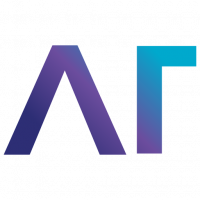Dubai, the bustling metropolis of the United Arab Emirates (UAE), stands as a global business hub known for its dynamic economic landscape and international workforce. As companies from across the globe establish their presence in this vibrant city, the demand for comprehensive Human Resources (HR) services has surged. This article provides a detailed overview of HR services in Dubai, covering their significance, key providers, and the evolving trends shaping the industry.
The Importance of HR Services in Dubai
HR services are crucial for businesses in Dubai for several reasons:
Talent Acquisition and Management: Dubai’s diverse business environment necessitates effective recruitment strategies to attract and retain top talent from around the world. HR services help companies navigate the complexities of hiring processes, including visa and work permit regulations.
Compliance with Local Laws: UAE labor laws and regulations are subject to frequent updates. HR services ensure that companies remain compliant with these laws, avoiding potential legal issues and penalties.
Employee Relations and Development: Effective HR management contributes to positive employee relations and professional development. This includes addressing grievances, facilitating training programs, and managing performance evaluations.
Cultural Sensitivity: Dubai's multicultural workforce requires HR services to manage cultural differences and foster an inclusive work environment.
Operational Efficiency: Outsourcing HR functions allows companies to focus on their core business activities while leaving HR tasks to experts.
Key HR Services in Dubai
Recruitment and Staffing
Recruitment is a critical function for businesses in Dubai. HR service providers offer comprehensive recruitment solutions, including:
Talent Sourcing: Identifying and attracting qualified candidates through various channels.
Screening and Selection: Conducting initial screenings, interviews, and background checks to ensure candidate suitability.
Onboarding: Assisting new hires with the onboarding process to ensure a smooth transition into the company.
Leading recruitment agencies in Dubai, such as Michael Page, Robert Half, and Hays, specialize in finding talent across various sectors, including finance, engineering, and IT.
Payroll and Benefits Administration
Payroll management involves the accurate processing of employee salaries, benefits, and deductions. HR service providers in Dubai handle:
Payroll Processing: Ensuring timely and accurate salary payments in compliance with UAE labor laws.
Benefits Management: Administering employee benefits such as health insurance, retirement plans, and other allowances.
Tax Compliance: Managing tax-related matters, including deductions and contributions, in accordance with local regulations.
Companies like ADP and PayAsia offer robust payroll and benefits solutions, helping businesses manage complex compensation structures.
HR Consultancy and Compliance
Navigating UAE labor laws and regulations can be challenging for businesses. HR consultants provide:
Legal Compliance: Advising on labor law compliance, including employment contracts, termination procedures, and dispute resolution.
Policy Development: Assisting in the creation of company policies and employee handbooks that align with local regulations.
Audit and Risk Management: Conducting HR audits to identify and mitigate potential risks.
Firms such as Mercer and PwC offer specialized HR consultancy services tailored to the UAE market.
Employee Training and Development
Investing in employee training and development is essential for organizational growth. HR service providers offer:
Training Programs: Designing and delivering training programs in areas such as leadership, communication, and technical skills.
Career Development: Providing career coaching and development plans to help employees achieve their professional goals.
Performance Management: Implementing performance appraisal systems and feedback mechanisms to enhance employee productivity.
Training providers like Franklin Covey and Dale Carnegie offer a range of programs to support employee development.
HR Technology Solutions
Technology plays a significant role in modern HR management. HR technology solutions include:
Human Resource Information Systems (HRIS): Software platforms for managing employee data, payroll, and benefits.
Recruitment Tools: Applicant tracking systems (ATS) and job boards for streamlining the recruitment process.
Employee Self-Service Portals: Platforms that allow employees to access and manage their personal information, leave requests, and other HR-related tasks.
Companies like SAP SuccessFactors and Oracle offer advanced HR technology solutions to enhance operational efficiency.
Outsourcing and BPO Services
Business Process Outsourcing (BPO) is increasingly popular among Dubai companies seeking to optimize HR functions. Outsourcing HR services can include:
Full HR Outsourcing: Delegating all HR functions to an external service provider.
Selective Outsourcing: Outsourcing specific HR functions, such as payroll or recruitment, while retaining other functions in-house.
Outsourcing firms like Ceridian and Randstad provide flexible solutions tailored to business needs.
Trends Shaping HR Services in Dubai
Digital Transformation
The adoption of digital tools and technologies is transforming HR services. Companies are increasingly utilizing HR software solutions, data analytics, and artificial intelligence (AI) to streamline HR processes and make data-driven decisions.
Focus on Employee Well-being
Employee well-being has become a priority for organizations in Dubai. HR services are focusing on mental health support, work-life balance initiatives, and wellness programs to enhance employee satisfaction and productivity.
Diversity and Inclusion
With Dubai’s multicultural workforce, promoting diversity and inclusion is crucial. HR services are working to create inclusive workplaces, implement diversity training programs, and ensure equal opportunities for all employees.
Flexible Work Arrangements
The rise of remote work and flexible work arrangements has influenced HR practices. Companies are adopting hybrid work models and developing policies to manage remote teams effectively.
Data Privacy and Security
Protecting employee data is a key concern for HR services. Compliance with data protection regulations and implementing robust security measures are essential for safeguarding sensitive information.
Challenges and Opportunities
While HR services in Dubai offer numerous benefits, they also face challenges:
Regulatory Changes: Frequent updates to UAE labor laws require HR services to stay informed and adapt to new regulations.
Talent Shortages: Finding skilled talent in competitive industries can be challenging, necessitating effective recruitment strategies.
Cultural Diversity: Managing a diverse workforce requires sensitivity and understanding of different cultural norms and practices.
However, these challenges also present opportunities for HR service providers to innovate and offer tailored solutions that address the evolving needs of businesses in Dubai.
Conclusion
HR services play a vital role in supporting businesses in Dubai, a city known for its rapid economic growth and international workforce. From recruitment and payroll management to compliance and employee development, HR service providers offer a range of solutions designed to enhance organizational efficiency and employee satisfaction. As the business landscape in Dubai continues to evolve, HR services will need to adapt to new trends and challenges, ensuring that companies remain competitive and compliant in a dynamic environment.
Frequently Asked Questions (FAQ) about HR Services in Dubai
1. What are HR services and why are they important for businesses in Dubai?
Answer: HR services encompass a range of functions related to managing an organization's human resources, including recruitment, payroll management, employee training, and compliance with labor laws. For businesses in Dubai, HR services are crucial due to the city's diverse and international workforce, complex regulatory environment, and competitive job market. Effective HR management helps companies attract and retain top talent, ensure legal compliance, and foster a positive work culture.
2. What types of HR services are commonly offered in Dubai?
Answer: In Dubai, HR services typically include:
Recruitment and Staffing: Talent acquisition, screening, and onboarding.
Payroll and Benefits Administration: Salary processing, benefits management, and tax compliance.
HR Consultancy and Compliance: Legal compliance, policy development, and risk management.
Employee Training and Development: Training programs, career development, and performance management.
HR Technology Solutions: HR software, recruitment tools, and employee self-service portals.
Outsourcing and BPO Services: Full or selective HR outsourcing.
3. How can I find a reliable HR service provider in Dubai?
Answer: To find a reliable HR service provider in Dubai, consider the following steps:
Research: Look for providers with a strong reputation and positive reviews. Websites like LinkedIn and business directories can be useful.
Referrals: Seek recommendations from other businesses or industry peers.
Assess Experience: Choose providers with experience in your industry and a track record of successful service delivery.
Evaluate Services: Ensure the provider offers the specific HR services you need and is familiar with UAE labor laws.
Request Proposals: Obtain and compare proposals to understand the scope of services and pricing.
4. What should I consider when outsourcing HR functions?
Answer: When outsourcing HR functions, consider:
Scope of Services: Clearly define which HR functions you want to outsource.
Provider Expertise: Ensure the provider has experience in the specific HR functions and understands local regulations.
Cost: Compare pricing models and ensure there are no hidden costs.
Compliance: Verify that the provider complies with UAE labor laws and regulations.
Technology: Check if the provider uses up-to-date technology for efficient service delivery.
Service Level Agreements (SLAs): Review SLAs to understand performance expectations and accountability.
5. How do HR service providers in Dubai handle compliance with UAE labor laws?
Answer: HR service providers in Dubai stay updated on UAE labor laws and regulations to ensure compliance. They assist businesses with:
Employment Contracts: Drafting contracts that adhere to legal requirements.
Visa and Work Permits: Managing visa and work permit applications and renewals.
Termination Procedures: Ensuring lawful termination processes and handling related legal issues.
Employee Rights: Adhering to regulations regarding working hours, overtime, and leave entitlements.
6. What are the benefits of using HR technology solutions in Dubai?
Answer: HR technology solutions offer several benefits, including:
Efficiency: Automate routine tasks like payroll processing and leave management.
Accuracy: Reduce errors and ensure compliance with regulations.
Data Management: Centralize employee data for better management and reporting.
Accessibility: Provide self-service portals for employees to manage personal information and requests.
Analytics: Offer insights into workforce metrics, helping with strategic decision-making.
7. How can HR services help with employee training and development?
Answer: HR services support employee training and development by:
Identifying Needs: Assessing training needs based on organizational goals and employee performance.
Designing Programs: Creating tailored training programs to address specific skills and knowledge gaps.
Facilitating Workshops: Organizing workshops, seminars, and courses.
Career Development: Offering career coaching and development plans to support employee growth.
Evaluating Effectiveness: Monitoring and evaluating the impact of training programs on employee performance.
8. What are some common challenges faced by HR service providers in Dubai?
Answer: Common challenges include:
Regulatory Changes: Keeping up with frequent updates to labor laws and regulations.
Talent Shortages: Competing for skilled talent in a competitive job market.
Cultural Diversity: Managing a diverse workforce with varying cultural norms and expectations.
Compliance Risks: Ensuring adherence to complex and evolving legal requirements.
Technology Integration: Adapting to new HR technologies and integrating them with existing systems.
9. How does Dubai’s multicultural environment affect HR practices?
Answer: Dubai’s multicultural environment impacts HR practices by:
Cultural Sensitivity: Requiring HR services to be sensitive to diverse cultural backgrounds and practices.
Inclusive Policies: Developing policies that promote diversity and inclusion.
Communication: Ensuring effective communication across different languages and cultures.
Workplace Harmony: Addressing potential cultural conflicts and fostering a collaborative work environment.
10. What future trends are influencing HR services in Dubai?
Answer: Future trends include:
Digital Transformation: Increased use of HR technology and data analytics.
Focus on Well-being: Greater emphasis on employee mental health and well-being initiatives.
Flexible Work Arrangements: Adoption of remote and hybrid work models.
Diversity and Inclusion: Enhanced efforts to promote diversity and create inclusive workplaces.
Data Privacy: Growing importance of protecting employee data and ensuring compliance with data protection regulations.
11. How can businesses stay updated on changes in UAE labor laws?
Answer: Businesses can stay updated on UAE labor laws by:
Following Official Sources: Monitoring updates from the UAE Ministry of Human Resources and Emiratisation (MOHRE) and other government bodies.
Consulting HR Experts: Engaging with HR consultants who specialize in UAE labor law.
Joining Industry Associations: Participating in local business and industry associations that provide updates and resources.
Attending Workshops: Enrolling in workshops or seminars focused on UAE labor law and compliance.
12. Are there any specific HR certifications or qualifications that HR professionals in Dubai should have?
Answer: HR professionals in Dubai may benefit from certifications and qualifications such as:
SHRM (Society for Human Resource Management) Certification
CIPD (Chartered Institute of Personnel and Development) Certification
HRCI (HR Certification Institute) Certification
Local Certifications: Qualifications recognized by UAE authorities or industry-specific certifications.
These certifications help ensure that HR professionals have the knowledge and skills necessary to manage HR functions effectively and comply with local regulations.



